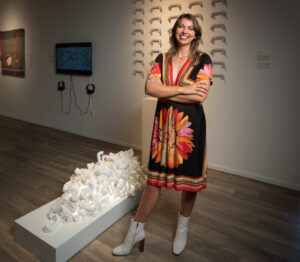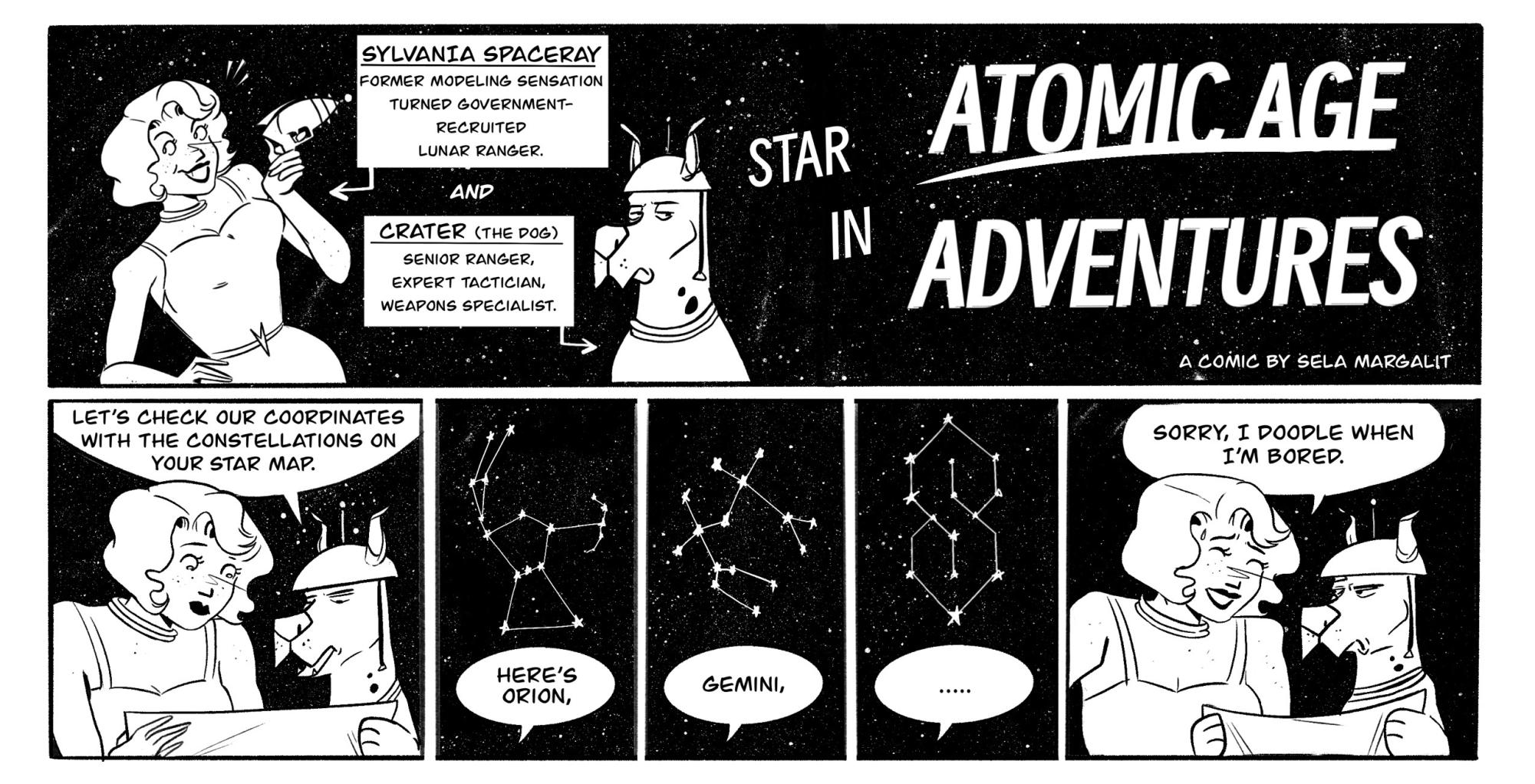
Wellesley Fellow Smith latest alum to earn national recognition
By Michael Chesnick. June 16, 2023When Kaitlyn Jo Smith received a prestigious early-career artist fellowship from Wellesley College, she thanked her professors at the University of Arizona School of Art for “believing in me and my work.”
“Graduate school taught me to think bigger, dream bigger and trust in my instincts,” said Smith, a 2020 Master of Fine Arts graduate in Photography, Video and Imaging whose interdisciplinary art focuses on America’s working class and the implications of automation on labor and religion.
Smith joins a long list of other recent alums and current students in the MFA and Art History/Art & Visual Culture Education programs to earn national recognition and realize their dreams. Some examples include:

- Ricardo Chavez (current Ph.D. student): Tyson Scholar in American Art
- Kendall Crabbe (Ph.D. ’22, AVCE): Elliot Eisner Doctoral Research Runner Up-Award in Art Education
- Karlito Miller Espinosa (MFA ’19): Whitney Independent Study Program
- Tehan Ketema (MFA ’22): First Wave Arts and Education Postdoctoral Research Fellowship, University of Wisconsin, Madison
- Martin Krafft (’20 MFA): Residency at the Visual Studies Workshop in Rochester, New York
- Naseem Navab (MFA ’19): Artists in Residence, Art Produce Gallery, San Diego
- Marina Shaltout (’20 MFA): Residencies at the Creative Centre in Stodvarfjordur, Iceland and at New Mexico State University
- Alex Turner (MFA ’20): Grand Prize, FOCUS Photo L.A. Summer 2021 Competition
- Bella Maria Varela (’21 MFA): Early Career Fellow at the University of Texas at Austin
- Kenzie Wells (’20 MFA): Residencies at the Wassaic Project Artist Residency in New York, Oxbow School of Art and Artists’ Residency in Michigan, and Penland School of Craft in North Carolina
“Our graduate programs are incredibly strong right now, and there is no better evidence of that than the success of our students after graduation,” School of Art Director Colin Blakely said. “Kaitlyn Jo is a perfect example. She pushed her work in new and truly innovative directions during her time here, and the recognition associated with this fellowship is a great and well-deserved validation of that.”

In late April, Smith received the 2023-2024 Alice C. Cole ’42 Fellowship in Studio Art at Wellesley College near Boston. The $35,000 award is intended to support outstanding artists at an early point in their career, by providing the necessary time to develop their art relatively independent of financial pressures.
“The work that I make is a direct reflection of my experiences growing up in a working-class family in rural middle America,” she said. “The fact that these stories resonate with others is validating for me not only as an artist, but as a young adult trying to understand my place in the world.”
Smith is from Sycamore in northwest Ohio, a town of about 800 people, where she joined 4H in fourth grade and took one of the youth organization’s photography classes. “I’ve been obsessed with images ever since,” she said. “I’m extremely fortunate that my parents have always been incredibly supportive in all of my creative pursuits.”
She was just a teen when the housing market crashed in 2007-08, leaving most of the adults she knew out of work. She earned her BFA in Photography from Columbus College of Art & Design in Ohio before joining the University of Arizona School of Art’s Photography, Video and Imaging MFA program in its first year of expanding into technology.
“Kaitlyn entered as a traditional photographer-based artist but quickly pushed the limits of the medium and her own work to compel viewers to feel the despair of the U.S. manufacturing labor market’s waning,” Regents Professor Sama Alshaibi said. “Many of her art pieces involve the use of material that has been altered, replicated, exploited and out of place.”
Added Alshaibi: “I’m thrilled that Kaitlyn’s practice has been recognized by the Wellesley College Art Department as spanning Sculpture through an expansive lens, including new media and deep-learning production, social practice and virtual domains.”

Smith calls the graduate program at the School of Art “a pressure cooker of brilliant minds and high expectations.”
“Throughout my entire experience, I felt supported by a group of (faculty) mentors who I genuinely believe wanted me to succeed: Sama, Martina Shenal, David Taylor, Cerese Vaden and so many others,” Smith said. “I miss the intensity of critiques and the space for criticism in a nurturing environment.”
Smith’s “American Standard” MFA Thesis Exhibition project, put on hold until 2021 because of COVID, reflected her roots in the Midwest. She was longlisted for the 2021 Lumen Prize in Art and Technology (London) and received the College Art Association’s Services to Artists Committee Award for her video “Lights Out.”
Her “Fixtures” and “Lights Out” installations, which make the workers and the products they produce visible, are on display at the Arizona Biennial exhibition until Oct. 1 at the Tucson Museum of Art.
“American Standard pushed me both conceptually and technically,” Smith said. “I’m even prouder of my most recent exhibition ‘Mass Production.’ It was the first solo show I have had since grad school and consisted of four entirely new projects. Since its installation, I have noticed a big shift in the way I see myself — I no longer felt like a student, but a professional.”
“Mass Production” ran from March 19 to April 30 at Bells Projects in Denver. The exhibition connected the repetition of Catholic mass to the rituals of factory production, Smith said.
“Each of my Catholic grandmother’s seven sons has worked in a factory,” she said. “When I think of their collective prayer at her funeral mass, I think of my father and his brothers on the assembly line. ‘Mass Production’ questions whether the learned rituals of Catholicism have conditioned them, and other blue-collar workers, for habitual lives of monotonous labor. …”

During her fellowship, Smith said she’ll continue “to explore the ways that automation and artificial intelligence are rapidly changing our understanding of work and how we structure our lives.”
Smith will take several trips to Wellesley, Massachusetts, but will remain based in Tucson and continue as an adjunct instructor at the School of Art. She’s taught various classes, including Introduction to Photographic Concepts.
“Kaitlyn has been a great asset to our extensive image/photography program because she has the ability to uniquely link established artistic techniques with cutting-edge technologies for relevant purposes,” Alshaibi said.
Smith’s work uses 3D printing and scanning “as a way to visually present the monotony of both automation and skilled manual labor,” she said.
“I love teaching. I love learning from my students,” Smith said. “There is something so inspiring about being surrounded by and helping realize so many wildly different ideas. I’m incredibly passionate in what I do and hope that I encourage that love of exploration and discovery in my students. Art is not easy, but I can think of nothing more rewarding than creating something out of nothing. I love watching my students experience that accomplishment.”
As part of her fellowship, Smith will give an artist’s talk at Wellesley this fall and work with students there. “While many of the subjects in my work have roots in the Midwest and Rust Belt, I believe that a lot of the themes are universal,” she said.
Smith’s work and teaching are important now more than ever because they combine science, technology, engineering and math, or STEM, with the arts, Alshaibi said.
“While Kaitlyn produces exquisite and poetic work in photography and found archives, it’s her capacity to fully embrace innovation and creative risk-taking that sets her apart from others,” Alshaibi said. “She has personal experience with what it takes to uphold tradition while developing and inventing for the future.”
As for her own work, Smith said both her “American Standard” and “Mass Production” projects have left her with “more questions than answers, but I think that is why they’re successful.”
“I make art to try and understand the world around me,” Smith said. “I don’t understand it yet; there is more art to be made.”







